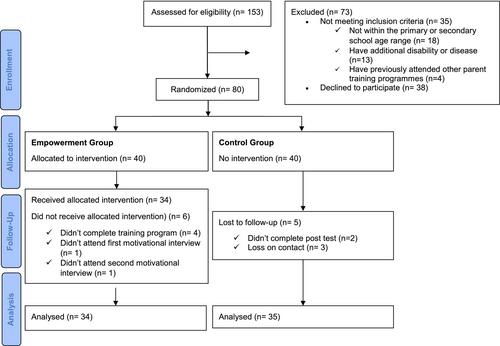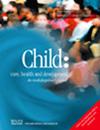Effectiveness of a Parent Empowerment Program for Parents of Children with Autism: A Randomized Controlled Trial
Abstract
Background
Parents of children with autism often face significant stress, low self-efficacy, and caregiver burden in meeting their children's complex needs. This study evaluated the effectiveness of a parent empowerment program combining parental training and motivational interviewing to support caregivers of children with autism in Türkiye.
Methods
A total of 69 parents (intervention = 34, control = 35) participated in this unblinded, two-group randomized controlled study, which was conducted between September 2020 and May 2022. A parent empowerment program, including four parental training sessions and two motivational interview sessions, was applied to the parents in the intervention group. The Parental Self-Efficacy Scale, Zarit Care Burden Scale, Perceived Stress Scale and Family Empowerment Scale were used to evaluate the effectiveness of the empowerment program. Standard practice was performed for the control group.
Results
Parents in the intervention group showed significantly greater improvements than those in the control group in self-efficacy (t = 5.340, p < 0.001), perceived stress (t = −4.636, p < 0.001) and family empowerment (t = 2.745, p = 0.008). No significant difference was observed between the groups in caregiver burden (p = 0.086).
Conclusion
This study reveals that using a parent empowerment program that includes motivational interviews along with training interventions is effective in empowering parents to manage their children's care, reducing stress, and supporting them to acquire effective parenting skills by increasing self-efficacy. Future research should explore designs that assess the independent and combined effects of motivational interviews and parent training programmes in randomised controlled trials.
The study was registered at ClinicalTrials.gov (https://clinicaltrials.gov/) under the registration number NCT06629974 on October 8, 2024.


 求助内容:
求助内容: 应助结果提醒方式:
应助结果提醒方式:


